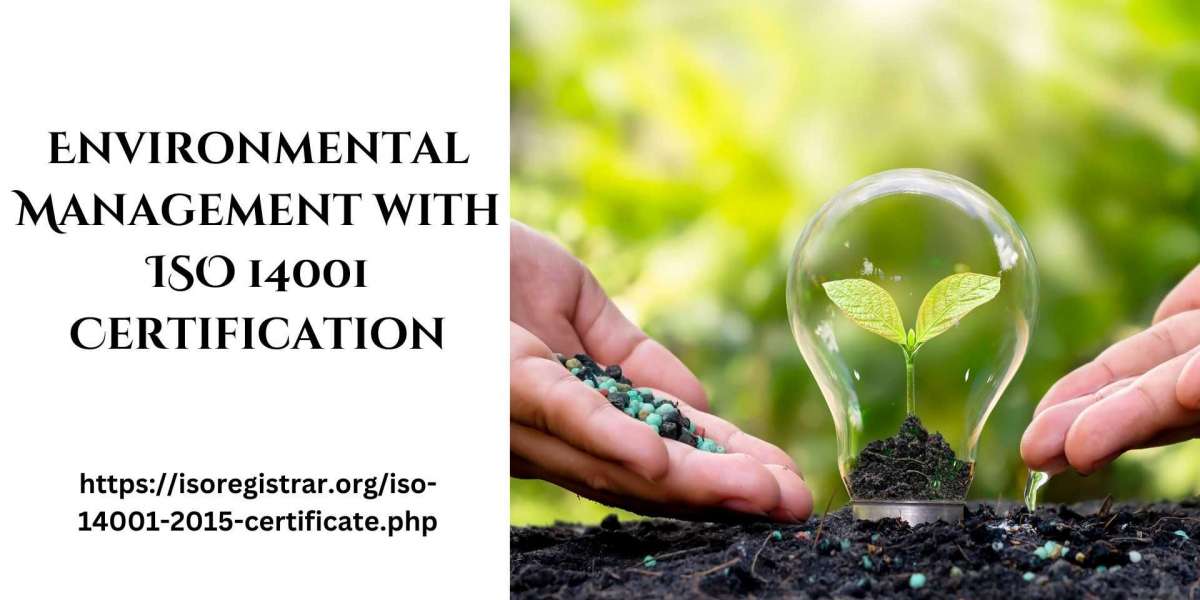In today’s world, environmental sustainability is not just a corporate buzzword; it is an essential aspect of business operations. Companies are increasingly expected to address their environmental responsibilities while maintaining profitability and operational efficiency. One of the most widely recognized standards for environmental management is ISO 14001. This standard helps organizations develop and implement an effective Environmental Management System (EMS) to minimize their environmental impact. Achieving ISO 14001 certification is a significant milestone for companies aiming to reduce their environmental footprint and demonstrate their commitment to sustainability.
What is ISO 14001?
ISO 14001 is part of the ISO 14000 family of standards, which focuses on environmental management. Specifically, ISO 14001 provides a framework for organizations to create, implement, and maintain an EMS. This system is designed to help organizations meet their environmental goals through efficient use of resources, reduction of waste, and compliance with applicable environmental regulations.
The standard was first published in 1996 by the International Organization for Standardization (ISO) and has undergone several revisions to remain relevant to the evolving environmental challenges. The most recent revision, ISO 14001:2015, emphasizes continuous improvement, leadership involvement, and a risk-based approach to environmental management. Organizations of all sizes and industries can pursue ISO 14001 certification, which makes it a versatile tool for global sustainability efforts.
Benefits of ISO 14001 Certification
ISO 14001 certification offers numerous benefits for organizations, both in terms of environmental impact and business performance. Here are some key advantages:
Improved Environmental Performance:
The core purpose of ISO 14001 is to improve environmental performance. By adopting the standard’s framework, companies can effectively manage their environmental responsibilities. This includes reducing waste, lowering energy consumption, managing water usage, and reducing carbon emissions. Over time, these actions contribute to a healthier environment and support global sustainability goals.
Cost Savings:
Implementing ISO 14001 often leads to significant cost savings. By identifying inefficiencies in processes, reducing energy use, and optimizing resource consumption, companies can reduce operational costs. For instance, reducing waste or improving energy efficiency not only lowers environmental impact but also reduces the need for raw materials and energy, which leads to direct financial savings.
Compliance with Regulations:
ISO 14001 helps organizations stay compliant with national and international environmental laws and regulations. The standard encourages proactive risk management and ensures that companies have processes in place to comply with environmental legal requirements. This reduces the risk of penalties, legal fees, and damage to the company’s reputation.
Enhanced Reputation and Brand Image:
In today’s eco-conscious world, companies that demonstrate a commitment to sustainability often enjoy a better reputation with customers, investors, and other stakeholders. ISO 14001 certification signals to the public that a company is dedicated to reducing its environmental impact and is actively working toward sustainability. This can improve customer loyalty, attract new business opportunities, and enhance the brand’s image in the market.
Increased Market Competitiveness:
As more consumers and businesses prioritize environmental responsibility, ISO 14001 certification can become a competitive differentiator. Companies that are certified demonstrate a commitment to best practices in environmental management, which can set them apart from competitors. Many companies and government entities now require suppliers to meet specific environmental standards, making ISO 14001 a valuable asset in procurement processes.
Continuous Improvement:
ISO 14001 encourages organizations to adopt a continuous improvement approach. The standard emphasizes that the EMS should be regularly evaluated, monitored, and updated to improve environmental performance. By regularly assessing risks, setting new environmental targets, and refining processes, companies can foster a culture of continuous improvement and environmental innovation.
A streamlined ISO 14001 certification process
- Visit the website: To start your certification journey, go to isoregistrar.org, the official website.
- Fill out the application: Complete the application and send it in for processing after entering all the required information.
- Pay: Payment alternatives will be offered upon submission. To proceed, make the payment.
- Upload the necessary files: After payment has been received, submit the necessary files, including your purchase or sale invoice, Aadhaar card, PAN card, and GST number. The website has further information on the paper.
- Call for Certification: To help you with the certification procedure, an executive will get in touch with you.
- Obtain Your ISO Certification: Within three to five business days, you will get an email containing your ISO certification.
Note: upgrade your quality with an iso 9001 certificate through our website
Conclusion
ISO 14001 certification is a powerful tool for organizations seeking to improve their environmental performance and demonstrate their commitment to sustainability. By establishing an effective EMS, organizations can reduce their environmental impact, achieve compliance with regulations, and benefit from cost savings and enhanced reputation. With a focus on continuous improvement, ISO 14001 helps businesses adapt to changing environmental challenges and contribute to a more sustainable future. Whether for large corporations or small businesses, ISO 14001 is an essential step toward environmentally responsible operations and long-term success.





